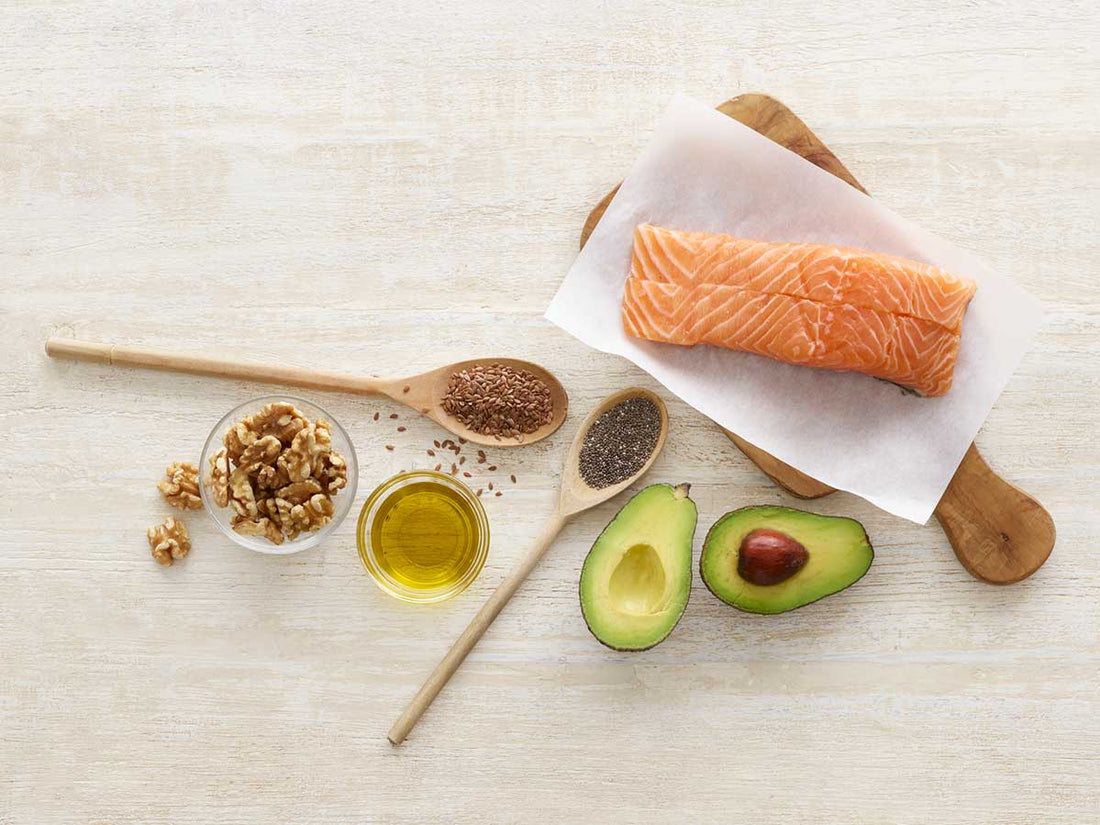Read Time: 5 min | Categories: Mental Health and Sleep | Brain Health
10 Best Foods for Your Brain
Patience Lister, BSc
Share this article
Your brain is your body’s boss. It controls everything from your memory, emotions, and stress, to your physical coordination, growth, and body weight. Your brain even directs involuntary functions that you may not be aware of, such as breathing, digestion, and circulation.
Just like the rest of your body, your brain relies on a healthy diet for proper function. One of the first steps for optimizing your brain function is fuelling it with a wide variety of nutrient-dense foods that supply vitamins, minerals, antioxidants, healthy fats, quality protein, and complex carbohydrates. [1]
Everyone can benefit from eating more brain-boosting foods. Here are 10 excellent choices to start with.
Cold-water Fish
Salmon, sardines, mackerel, and many other cold-water fish are rich in the omega-3 fatty acids eicosapentaenoic acid (EPA) and docosahexaenoic acid (DHA). These critical components within the membranes of brain cells play important roles in brain and eye development. DHA is also very concentrated in the section of the brain that controls memory and learning. [2]
Turmeric
Turmeric has been used for over 4,000 years in traditional Chinese and Ayurvedic medicines. Curcumin is the main active component responsible for many of turmeric’s benefits. It is a potent antioxidant that helps protect the brain and body against oxidative stress, free radical damage, and water- and fat-soluble toxins.[3]
Turmeric can be used in a wide variety of recipes to give foods a delicious, earthy flavour and appealing yellow hue. For instance, try adding one tablespoon of powdered turmeric to a pot of your favourite lentil soup or sprinkling it onto scrambled eggs. Golden milk is a wonderful alternative to hot cocoa that is made by mixing powdered turmeric, ginger, and honey with warm milk.
Probiotic-rich foods
Eating a variety of probiotic-rich foods, such as cultured yogurt, fermented sauerkraut, kimchi, kombucha, and tempeh, is a delicious way to support healthy brain function. Probiotic organisms present in these foods, such as Lactobacillus and Bifidobacterium species, help to maintain a healthy gut flora. Your gut microflora and brain communicate through the “gut-brain axis”, allowing your gut health and mental health to work in harmony.[4]
Blueberries
The anthocyanins concentrated within blueberries are antioxidant nutrients that help quench the free radicals responsible for oxidative damage to cells. By reducing free radical damage, blueberries protect the capillaries that circulate blood to the eyes, brain, and body.[5]
Green Tea
A hot cup of green tea is a brain-friendly way to keep warm this autumn. It contains green tea catechins, polyphenols, and a variety of other plant nutrients that provide antioxidant protection to brain neurons.[6] The combined effects of caffeine and other nutrients in green tea may also help promote alertness in a gentler way than coffee.

Nuts
When it comes to your brain, almonds, walnuts, cashews, pistachios, Brazil nuts, and pecans are all fantastic choices. People who eat nuts regularly have higher intakes of brain-boosting vitamins and minerals, including vitamins A, B6, C, E, and K, along with calcium and iron. [7] Walnuts are an especially good source of the omega-3 ALA (alpha-linolenic acid), which the body converts into EPA and DHA, as needed. [8]
Greens
There’s a reason why parents often say “Eat your greens!” Leafy green vegetables such as spinach, kale, and collards are good for your brain. Eating an additional serving of greens every day will go a long way toward boosting your intake of brain-friendly nutrients, such as vitamins K and E, B vitamins, iron, lutein, nitrates, folate, and antioxidants. [9]
Lean Proteins
Protein is needed throughout the body to make enzymes, hormones, immune cells, and so much more. It supplies the amino acids needed to form brain neurotransmitters, such as serotonin and dopamine. Protein also plays an important role in keeping blood sugar balanced so you can stay focused and alert.[10] Great sources of lean protein include:
- Fish and shellfish
- Low-fat Greek yogurt
- Turkey and chicken breast
- Tofu and soy products
- Beans and lentils
- Quinoa
- Eggs
Whole Grains
Wild rice, millet, amaranth, buckwheat, and oats are just a few of the whole grains that supply complex carbohydrates for longer-lasting energy and steady blood sugar levels. Many grains are also equipped with selenium, B vitamins, and folate, which are needed for proper cognitive function.
Pumpkin Seeds
For their tiny size, pumpkin seeds can make a big impact on your diet. They are stocked with vitamins, minerals, healthy fats, fibre, and enzymes. Most notably, a quarter cup of pumpkin seeds contains 2.5 mg of zinc and 191 mg of magnesium, which are paramount minerals for normal brain function. [11] For a portable brain-boosting snack that will also keep you full and energized, mix pumpkin seeds with almonds and dried cranberries.
Water
Although water is not a food, staying hydrated is the best way to top off a brain-boosting diet. After all, water accounts for 60–80% of your body. Drinking water is associated with improved memory and cognitive performance, while dehydration is a common culprit for headaches, fatigue, and mood changes. [12]
